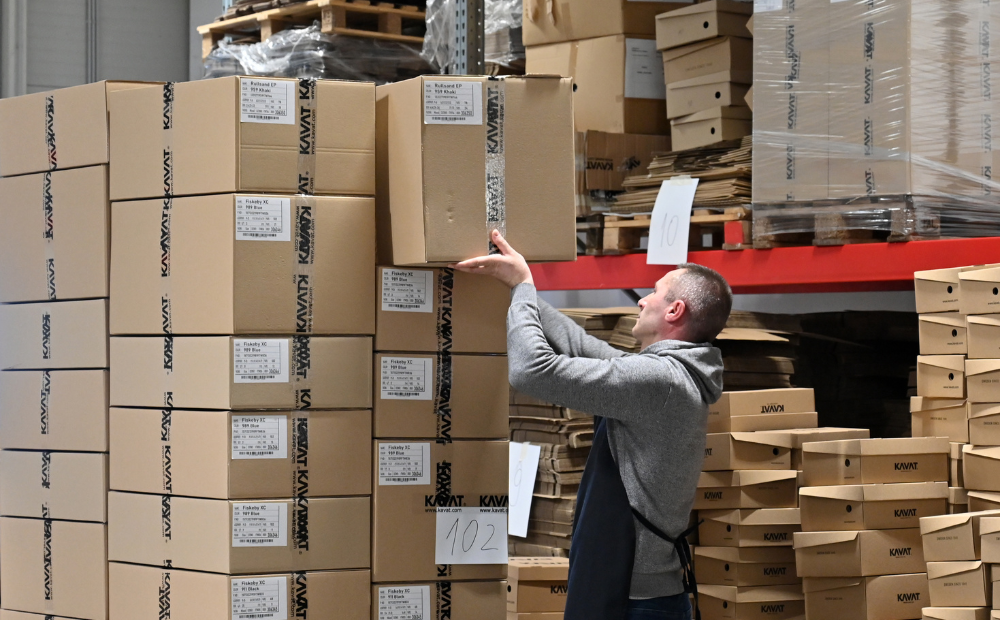A year of eco-modulation – results from EU Member States

Over 70% of European packaging producers do not take eco-modulation into consideration in the planning of new packaging. This figure was revealed in a packing industry conference held in Brussels earlier this year. Eco-modulation was supposed to signal to the entire value chain that recyclable packaging offers a competitive edge. So, what is the problem?
Organisational structure poses challenges
Modulated fees were supposed to be implemented in all EU Member States in 2023. Based on first impressions from Member States, eco-modulation is a challenging concept for many European companies.
One challenge is the organisational structure of the companies. According to a study conducted by Germany’s central environmental authority (UBA), it is difficult to apply eco-modulation in the everyday operations of companies. The UBA’s report shows that nearly all companies manage their producer responsibilities separately from the research and development departments in charge of packaging. At many companies, these teams do not work together at all. As a result, the principles of eco-modulation are not considered in the packaging planning process or in the selection of packaging materials for the company’s products.
Boosted by strong leverage
The second problem relates to information. Many industry professionals are not aware of how significant the impacts of eco-modulation can be on a company’s business expenses even now. In many countries, there are significant differences in the recycling fees for packaging materials depending on the relative difficulty of recycling them.
For instance in Sweden, the recycling fee last year for easy-to-recycle plastic packaging was EUR 541 per tonne and EUR 839 per tonne for difficult-to-recycle packaging. In Finland, the recycling fee for consumer plastic packaging made from mono-materials charged this year by Finnish Packaging Producers Ltd is EUR 199 per tonne and EUR 369 per tonne for PVC packaging. The corresponding fees charged by Sumi Oy are EUR 210 and EUR 480 per tonne.
Different countries, different systems
The third problem concerns the different systems in place in different EU Member States. In other Member States, the differences between modulated recycling fees are not as large. In Spain, for instance, the economic incentive is significantly smaller.
Likewise in France, which operates an entirely different system. In addition to the small economic incentive, companies that make environmentally positive packaging choices are entitled to bonuses as compensation, while companies that use difficult-to-recycle materials incur penalties. However, eco-modulation bonuses and penalties only account for a few per cent of the recycling fees. Moreover, 93% of the penalties in France were imposed on cardboard packaging last year, even though the biggest problem in France is also the low recycling rate of plastic packaging.
More information and time
According to a working paper published by the OECD, the modulation of recycling fees should be significant and the system harmonious across all Member States for eco-modulation to provide a meaningful incentive for companies to change their packaging planning. On the other hand, fees that are too high and based on difficult-to-understand producer responsibility fee calculation methods may seem arbitrary from the perspective of companies. According to the OECD, it seems that direct bans may be more effective when it comes to packaging planning, at least for the time being. Results were seen quickly, for instance, when the use of certain chemicals in textiles was banned in the Regulation on the Registration, Evaluation, Authorisation and Restriction of Chemicals (REACH). However, for the value chain as a whole, eco-modulation is an effective solution.
It is clear that there is underlying potential in the modulation of recycling fees, but the modulation systems must be simple and provide sufficient incentive across all Member States. Companies, on the other hand, need more information about eco-modulation and its impacts, benefits and future development.
What is eco-modulation?
Eco-modulation refers to the structuring of packaging recycling fees. Designated packaging producers pay a recycling fee for the collection and recycling of packaging they place on the market. In Finland and all other Member States, packaging recycling fees are eco-modulated, or tiered.
The objective of eco-modulation is based on the polluter-pays principle introduced in the Union’s environmental policy. In line with this principle, recycling fees for packaging that is easy to recycle are lower than the fees for packaging that is difficult to recycle. For instance, the recycling fee for mono-plastic packaging is lower than the fee for packaging made from several types of plastic. The idea is to encourage obligated packaging producers to manufacture and use packaging that is reusable and easy to recycle.